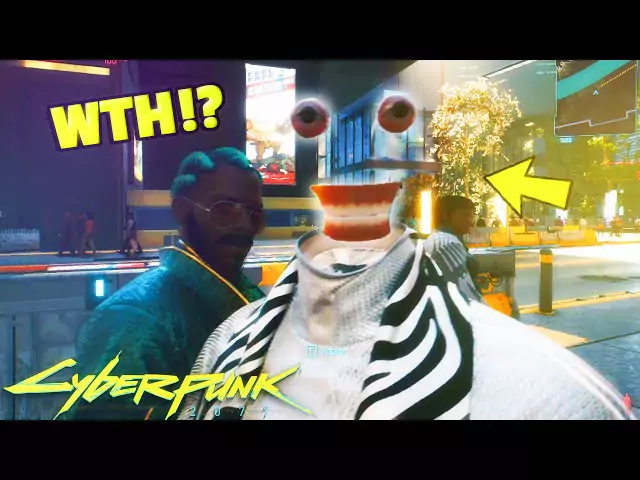How memes increase video game popularity
21.01.2025
Memes are often like inside jokes, with the difference that anyone on the Internet can join in. They make people feel part of a community with the same humor, interests and sometimes even frustrations. It is this sense of connection that makes them go viral. When people form a connection through shared interests or beliefs, and you sprinkle a little humor on top, you’ve created the ultimate stew called a “meme” (bonus points if it’s about a topic that’s a little controversial).
Memes and marketing
Take Reddit, for example. The “Unpopular Opinions” subreddit is full of posts that sometimes turn into viral memes. A screenshot of one of these posts can spark a meme trend. Memes have the uncanny ability to spread like wildfire, shaping entire online communities. For companies targeting younger audiences, especially Gen Z, incorporating memes into marketing strategies can be an incredibly effective approach. The challenge, however, is that online communities catch on very quickly if something is not authentic. Brands that try to jump on meme trends without really understanding them often end up creating something cringe-worthy. These attempts are usually laughed at rather than enthusiastically received. This happens when companies generalize what a meme should be or, worse, when older corporate teams (the “boomers”) try to appeal to a younger audience with memes that are out of tune. Ironically, this attempt has itself become a meme, making fun of out-of-touch corporate marketing.
However, there are companies that have really figured out how to appeal to a younger audience. Take Bol.com, for example. After much experimentation, they got their meme marketing right, resulting in them becoming a favorite among Gen Z in Belgium and the Netherlands.

Power to the community
Yet the most memorable and viral memes are almost always community-driven. They arise organically, making them unpredictable and impossible to force. A good example is the indie game “Among Us,” which exploded in popularity during the pandemic. The game became more than just a fun way to pass the time; it became a meme machine and has had a lasting impact on Internet culture. Among Us is essentially a digital version of the game “Werewolves,” where players try to identify and vote out an “imposter.” Its low price and accessibility made it the perfect game for people who were indoors during the pandemic. In addition, the game’s quirky aesthetic and built-in social dynamics made it ideal for meme content. Among Us’ memes became an integral part of its success and conquered the Internet “by storm. The game’s influence even extended to mainstream Gen Z slang (check out our article on Gen Z slang!). The term “sus” (short for suspicious) became a viral catchphrase when players accused each other of being the cheater. This simple, meme-worthy slang spread across platforms such as Twitter, TikTok and Reddit, and even beyond the digital world. Funny moments in the game became memes and streamers on Twitch and YouTube increased the game’s reach without a large marketing budget ඞ.

Memes allow games to resonate with a wider audience, even those unfamiliar with games. The phrase “Press F to show respect” comes from a Call of Duty: Advanced Warfare meme and is now used on many platforms by many users, most of whom don’t even know where it came from. If you are curious about the context behind a meme, you can take a look at the specialized Wikipedia for memes called “Know Your Meme.” This platform is updated daily by passionate meme enthusiasts.

Bad memes
While memes can serve as powerful tools for marketing and building community, they can also be used in a negative way to mock the poor decision-making of companies and organizations. A notable example is the Cyberpunk 2077 debacle. Upon release, the game was full of glitches, which led to an explosion of memes mocking the game’s performance. These memes highlighted the company’s greed that overshadowed the development process, as many players felt misled by pre-launch marketing that promised a polished product. Instead of being praised for their creativity, the memes served as scathing criticism of the game’s failure, leading to lasting damage to the developer’s reputation. This phenomenon highlights a crucial aspect of memes: while they can increase a game’s popularity, they can also destroy reputations if not handled with care.
Memes have become an integral part of the video game marketing landscape. They offer brands a way to connect with audiences through humor, perspective and shared experiences. Memes should not be forced; they should feel authentic. A developer can slyly encourage players to make memes by designing the game to facilitate meme making, or it can incorporate memes into its marketing strategy if it fits the context.
Memes have emerged as a powerful tool in the game industry and play a crucial role in shaping the popularity and cultural resonance of games. They serve as more than just entertainment; they are a means of building community, allowing players to connect with each other through shared experiences, humor and even frustrations.
Memes, however, are sometimes a double-edged sword for game developers and brands. They can increase a game’s reach and engagement, but if handled incorrectly, they also risk backfiring. Inauthentic or poorly executed marketing strategies can lead to a flood of negative memes that damage reputations and erode consumer trust.
In a nutshell

To successfully navigate this landscape, developers must prioritize authenticity and community engagement in their approach to memes. By fostering an environment where players feel empowered to create and share their own content, game developers can harness the viral potential of memes while ensuring that they resonate positively with their audience. Ultimately, in a digital age characterized by the rapid sharing of information, the strategic use of memes will continue to be an important factor in a game’s popularity and its lasting impact on Internet culture.


